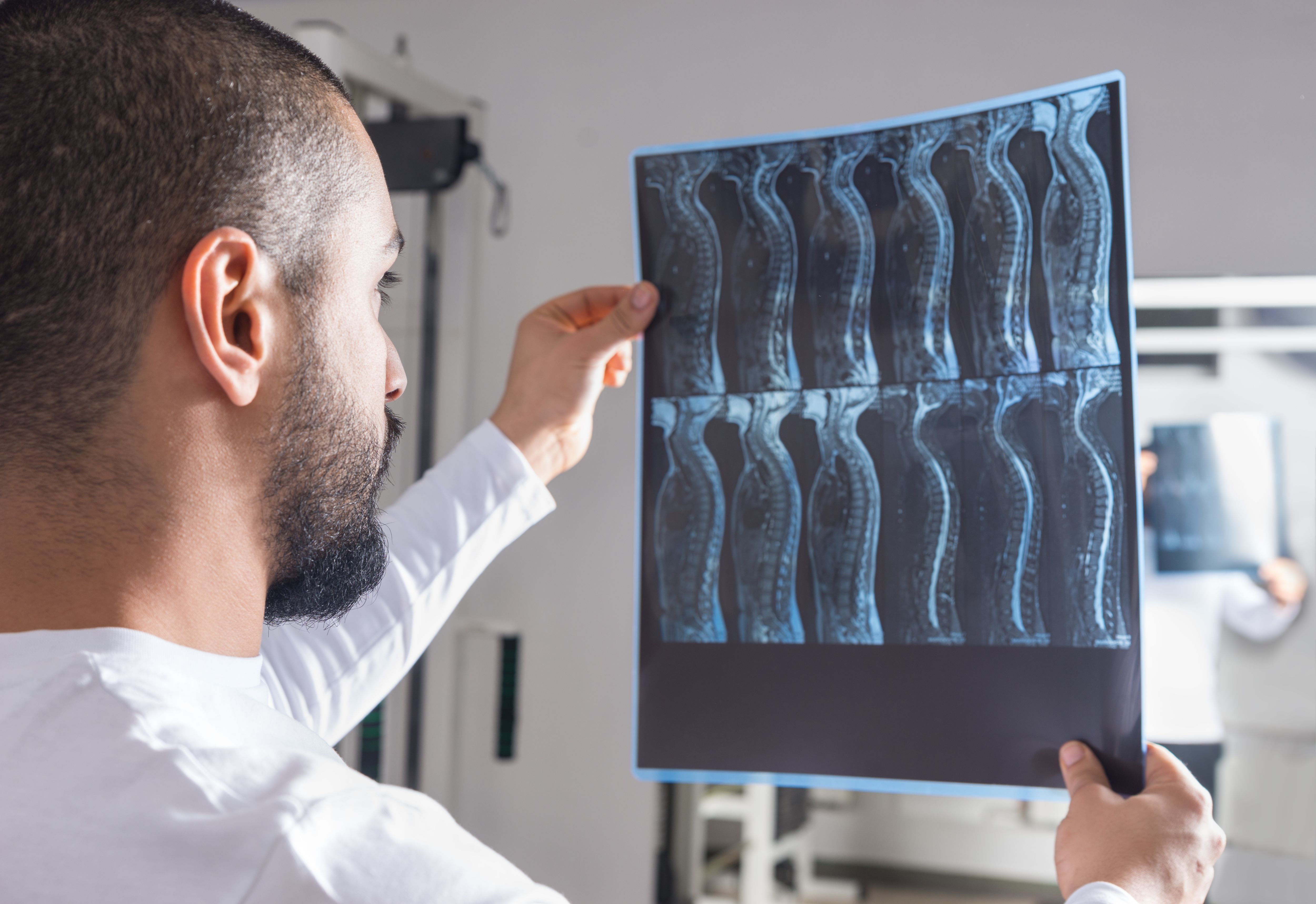Back pain: who should you see?
Who should you consult if you suffer from back pain? It's sometimes difficult to find your way between the health professionals you can consult directly or via your GP (1) (physiotherapist, specialist, etc.) and other health professionals (osteopaths, chiropractors). Each has undergone specific training and can provide specific treatments that may or may not be reimbursed.
The first thing to do when suffering from back pain, before going to any specialist, is to make an appointment with your GP. GPs know their patients better than anyone else, including their medical history. All back sufferers are different, and so are the pains they experience. There is no pre-established care pathway; it is up to the GP to choose where to refer his patient so that he receives the most appropriate care.
The general practitioner
GPs are at the heart of healthcare provision, because they work locally and in the field. They are the preferred partner of patients and play an essential role in coordinating care. After examining the patient, the GP may decide to refer the patient to a specialist. In most cases, they are registered with the Social Security system as the treating doctor.
The GP is the right person to make a precise diagnosis by means of a clinical examination and careful questioning: in most cases, back pain is not serious and this consultation will suffice. Following this initial diagnosis, the GP may ask for further medical examinations, but this is far from systematic. They may also refer the patient to a back specialist if they feel this is necessary.

Osteopaths and chiropractors can also be consulted. In France, these professions are not recognised as health professionals, but their fees may sometimes be reimbursed by mutual insurance companies.
Specialists to consult for back pain
Rheumatologists
In order to comply with the treatment pathway, patients must be referred to the rheumatologist by their general practitioner (unless they are under regular care, or have a chronic pathology). A rheumatologist is a doctor specialising in bone and joint disorders.

They treat pain and dysfunctions of the musculoskeletal system and associated tissues. He deals with inflammatory diseases of the joints, diseases of the locomotor system, osteoarthritis of the joints and spine, diseases of tissues close to the joints and certain pathologies affecting several organs, including the locomotor system. He is therefore well placed to treat back pain. If necessary, the rheumatologist will carry out further medical investigations to try to identify the causes of the pain. The rheumatologist may prescribe or perform infiltrations (local injections of anti-inflammatory products). This is the specialist you consult if your lower back pain is resistant to painkillers.
The physical and rehabilitation physician (PRM)
They generally work in a multi-disciplinary environment involving doctors from different specialities and specialised paramedical staff: physiotherapists, occupational therapists, speech therapists, dieticians, etc. Physical medicine is aimed at patients with acute illnesses (following a fracture) or chronic illnesses (osteoarthritis).
Internists
Internists treat diseases that affect several organs simultaneously (systemic diseases) or the body's defences (immune or auto-immune diseases). This speciality is mainly represented in hospitals, where internists are called upon to help diagnose complex diseases that involve different organs either jointly or at a later stage. More often than not, they coordinate the work of the various specialists involved and summarise all the diagnostic elements: consultations, examinations and analyses.
The anaesthetist
Some anaesthetists work in chronic pain management centres. If your back pain is resistant to all medication, your GP may advise you to consult an anaesthetist.
The sports doctor
The sports doctor coordinates the prevention, diagnosis and treatment of sports-related illnesses. In this context, they may be called upon to treat people with back problems.
Radiologists
Radiologists carry out examinations - generally using X-ray machines - to determine the anatomy of painful areas such as the back, and sometimes to identify the cause of the pain. He may also use more complex machines, such as MRIs, which provide a very precise view. Sometimes he performs specific procedures, such as injecting a product to soothe inflammation in the back (infiltration).
The neurosurgeon
The neurosurgeon is the specialist who studies and treats diseases of the brain, spinal cord and nerves. As such, they may be involved in treating people who suffer from back problems due to rare pathologies.
Orthopaedic surgeons
Orthopaedic surgeons work on bones in the event of fractures or deformities. It is in this context that he may be involved in treating people with back problems caused by malformations.
Alternative doctors
Homeopathic doctors prescribe products that are supposed to stimulate the body to heal itself. Their effectiveness has not been scientifically proven, but they can be used to treat back pain.
The acupuncturist uses fine needles to combat a possible energy imbalance that could be the cause of illness. Certain acupuncture points are used to treat back pain.
Other health professionals
Physiotherapists
In the event of persistent back pain, a physiotherapist is an important ally of the general practitioner. He is a specialist in motor and functional re-education. To relieve the patient's discomfort, they give relaxing massages, use physiotherapy and balneotherapy, and take preventive action through targeted re-musculation exercises and gymnastics. The practitioner rebalances the spine by strengthening the surrounding muscles. As well as relieving pain, physiotherapy also helps patients learn to move correctly and adopt good habits to avoid relapses. Most prescribed physiotherapy is covered by social security.

The midwife
During pregnancy, the midwife can be a valuable ally in listening to you and helping you to manage lower back and pelvic pain.
The chiropodist
Some back pain is linked to unequal length of the lower limbs or foot problems, and the chiropodist can be a great help, particularly for younger people, before the damage sets in.
Non-health professional therapists
Osteopaths
Osteopathy is a manual therapy that aims to relieve joint pain using a range of manipulative techniques. It remains controversial, particularly as regards its risks and benefits. However, many patients report relief from osteopathic treatment, and one study has shown that osteopathy is more effective in the short term (less than 6 weeks) than placebo or no treatment in patients suffering from chronic low back pain (1).
These procedures are not reimbursed by the French social security system, but are often covered by mutual insurance companies.
Chiropractors
Chiropractic is a manual therapy aimed primarily at the spinal column. Using manipulations and exercises, the chiropractor can act both preventively and curatively. He works to restore balance between the nervous and muscular systems, and can thus treat symptoms other than simple back pain. Chiropractic treatment is not reimbursed by the French social security system.
Patients therefore have a wide choice of practitioners to turn to in the event of back pain. Alternative medicine, such as acupuncture or muscular gymnastics, can also be used on medical advice.


